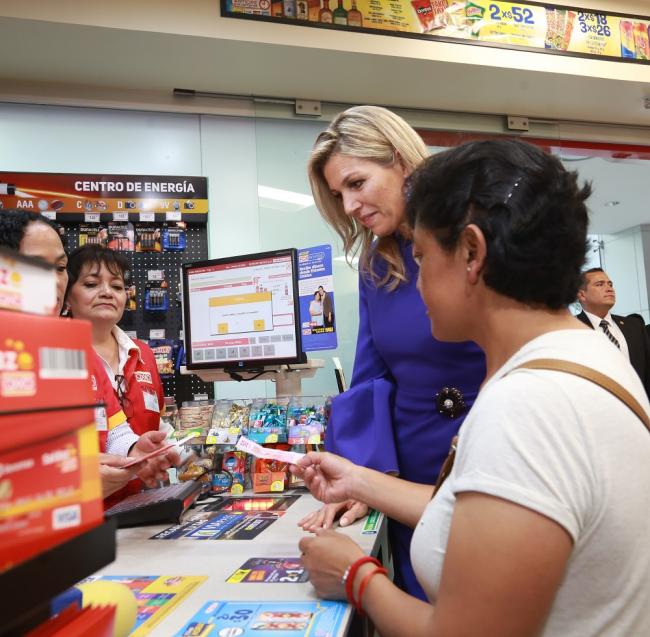
Care for a soda with that savings account?
For millions of low-income customers throughout Mexico, OXXO corner markets are a ubiquitous neighborhood presence, offering snacks, drinks, cell-phone top-ups, and other quick purchases.
But OXXO is more than just a convenience store. Through its popular Saldazo financial account, it also gives its customers the opportunity to save money, make purchases, pay bills, and send funds cheaply and easily, with a success traditional banks can’t easily match.
With more than 15,000 stores throughout the country, OXXO is making financial access easy for people who find banks expensive, inconvenient, intimidating, or all three. Its model is hugely successful in Mexico—the Saldazo account was launched in 2012 and it now has 7.3 million customers, 60 percent of whom are actively using their accounts.
The key to this innovative model lies in OXXO’s broad geographic reach as one of Mexico’s largest chains, plus the firm’s intimate knowledge of its low-income customers’ preferences and needs. Convenience plus client-centricity, squared.
During the Special Advocate’s visit to Mexico City in September 2017, she learned how the Saldazo account works from María Teresa Gaytán López, a domestic worker who was visiting an OXXO branch to open her first account. For a fee of 50 pesos (approximately US$2.60), in less than five minutes she opened a savings account with a single form of ID, accessible via her mobile phone—no minimum balance and no paperwork. The account comes with a debit card issued by Citibanamex, which enables her to make payments at other retail locations.
One reason for Saldazo’s success is that OXXO has a professional staff trained to serve customers at the bottom of the economic pyramid. With financial services available 12 hours a day, seven days a week—far longer than a bank—managing the account is easy for most working people.
Ms. Gaytán López plans to ask her employers to deposit her salary directly into her new account so she can avoid carrying--and spending--her hard-earned cash. Before, she could never have had a financial account because she couldn’t afford the minimum balance required by traditional banks. Now, she can use her phone or card to pay bills, send money to relatives, deposit or take out funds, and save for her children’s expenses. A step forward for a woman whose eyes are on the future.